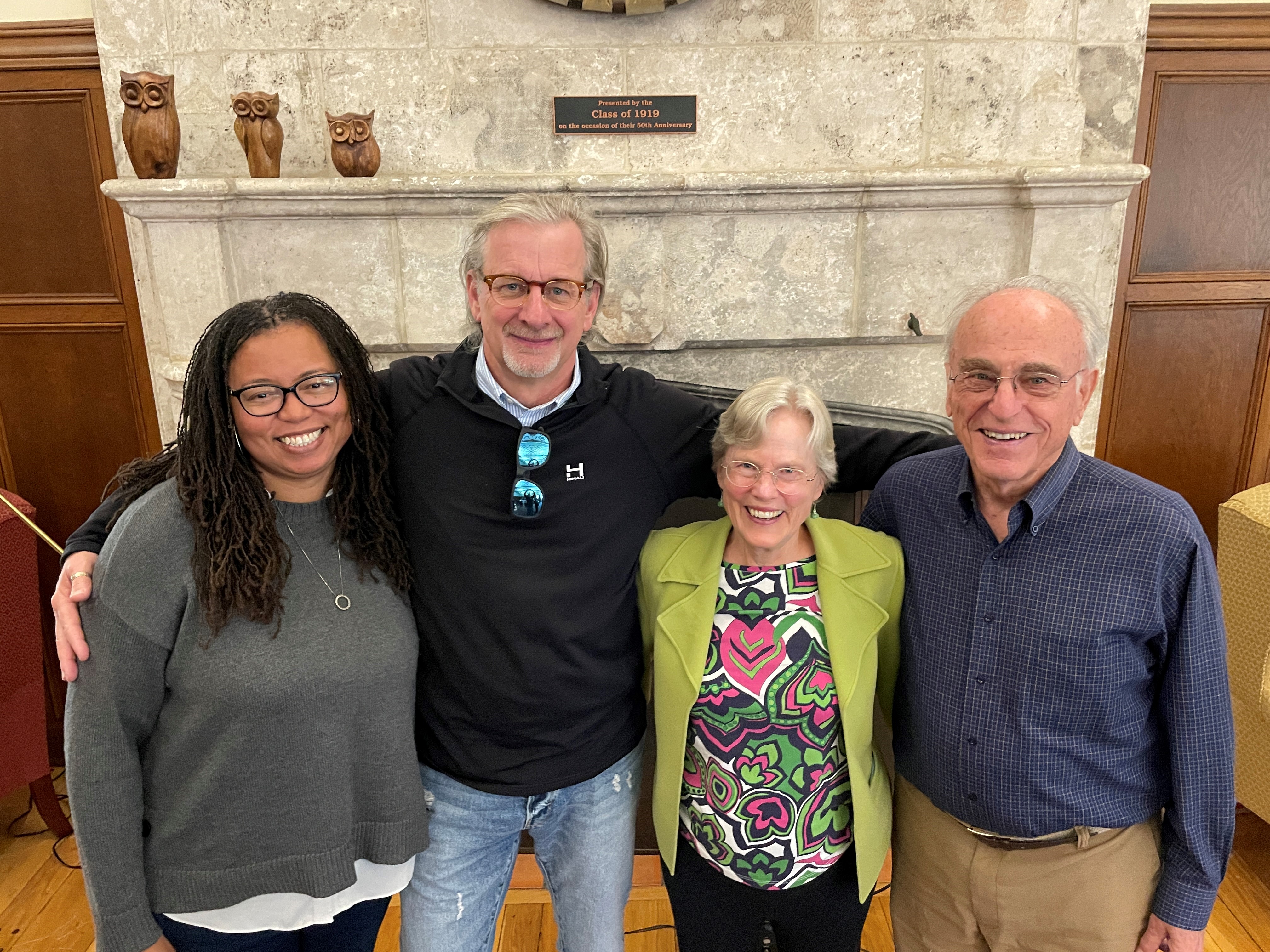Florida Center for Reading Research Celebrates 20 Years of Connecting Through Reading
In 2001, Florida State University professor Joseph Torgesen visited Justina Elementary School in Jacksonville, Florida with then-President George W. Bush and then-Governor Jeb Bush as the president unveiled a national reading initiative.
That early meeting between Torgesen and former Governor Bush sparked the beginning of an ongoing discussion between the two men about improving reading in Florida and around the country and in 2002, Bush and the Florida Legislature established the Florida Center for Reading Research with Torgesen as its first director.
Now, 20 years later, FCRR has built a legacy of innovative scholarship, learning and engagement to advance the science of reading and improve student achievement.
“Through its research and outreach over the past 20 years, FCRR has been able to advance the science of reading and to help educators access the best and most up-to-date knowledge on the development of reading and reading-related skills as well as effective reading and early literacy pedagogy,” stated FCRR Associate Directors Drs. Christopher Lonigan and Beth Phillips. “Importantly, our partnerships with educators and policymakers have helped us understand the questions and issues that teachers and administrators see as most central to working with children effectively, and these insights have helped shape our research and dissemination work in meaningful ways.”

Nicole Patton Terry, Ph.D. (FCRR Director), Don Compton, Ph.D. (Director Emeritus), Barbara Foorman, Ph.D. (Director Emeritus), and Joseph Torgesen, Ph.D. (Director Emeritus)
Over the past 20 years, FCRR has developed a deep portfolio of work based on a variety of faculty members from different disciplines — psychology, social work, education, and communication science disorders. This multidisciplinary approach has become a hallmark of the center’s work and one of the reasons the federal government and major foundations have repeatedly partnered with FCRR faculty.
Since its inception, FCRR has been awarded over 120 contracts and grants, representing over $106 million in funding. A few examples of the center’s project portfolio include:
- Florida Learning Disabilities Research Center
Sponsored by the National Institutes of Health and led by FCRR associate director Richard Wagner, the Florida Learning Disabilities Research Center — one of three nationally — was created over 10 years ago to broaden the scientific and practical understanding of learning disabilities and related conditions. - Reading for Understanding
Under associate director Christopher Lonigan, Reading for Understanding was awarded by the Institute of Educational Sciences — part of the U.S. Department of Education — to investigate how children understand text and develop better ways to teach reading for understanding; help children learn; and discover what we can do to make sure all children succeed. - Lyle Spencer Research Award
Funded by the Spencer Foundation and awarded in 2015 to FCRR associate director Beth Phillips and School of Communication Science & Disorders affiliate faculty Carla Wood, the Lyle Spencer Research Award investigated key characteristics of children’s language development, identifying the predictors, associations, and valid measurement of language environments in preschool classrooms serving children at high risk because of poverty and low parental education.
These strong ties with federal agencies and large private foundations have allowed FCRR to build a large network that impacts student achievement at the national, regional, state, and local level.
“We are dedicated to conducting rigorous and relevant research, to increasing the awareness and use of that research, and to engaging the university and community around that research,” said FCRR Director Nicole Patton Terry. “We believe that, through our research, innovation, and engagement activities, we will see all students reading and succeeding in school. That’s the goal.”
Leveraging these networks built over the last 20 years, FCRR has been able to support reading development, school readiness, and academic success among children and youth; connecting partners to evidence to improve outcomes for children, families, schools, and communities.
“[FCRR takes] a whole child approach to their work, understanding that the classroom instruction is only part of the equation when it comes to a child’s success,” said provost and executive vice president for academic affairs, Dr. Jim Clark.
The center has often taken unique approaches to disseminating its findings, hosting statewide events for educators and creating infographics, activities, and graphic novels to better communicate and connect with caregivers and other stakeholders. FCRR has also used Florida State University’s annual Great Give fundraising campaign to bring resources to local schools and libraries and invests in the future of education research by preparing future scholars through several federally-funded doctoral training programs.
In celebration of the momentous anniversary, FCRR has sponsored events on campus, across the country, and everywhere in-between. The center participated in the Florida Department of Education's Summer Literacy Institute and the Society for the Scientific Study of Reading annual conference this summer and hosted a series of lunch and learn events this fall. A 20th anniversary reception held in October offered faculty and staff the opportunity to connect with university colleagues and community partners. The celebration officially concludes at the end of Celebrate Literacy Week, Florida! in January at the Florida Literacy Association’s annual conference.
Throughout the year, messages of celebration have been shared by past and present faculty, and resources created specifically for the anniversary have been released on a commemorative website.
Learn more at fcrr.org/20th-anniversary.

